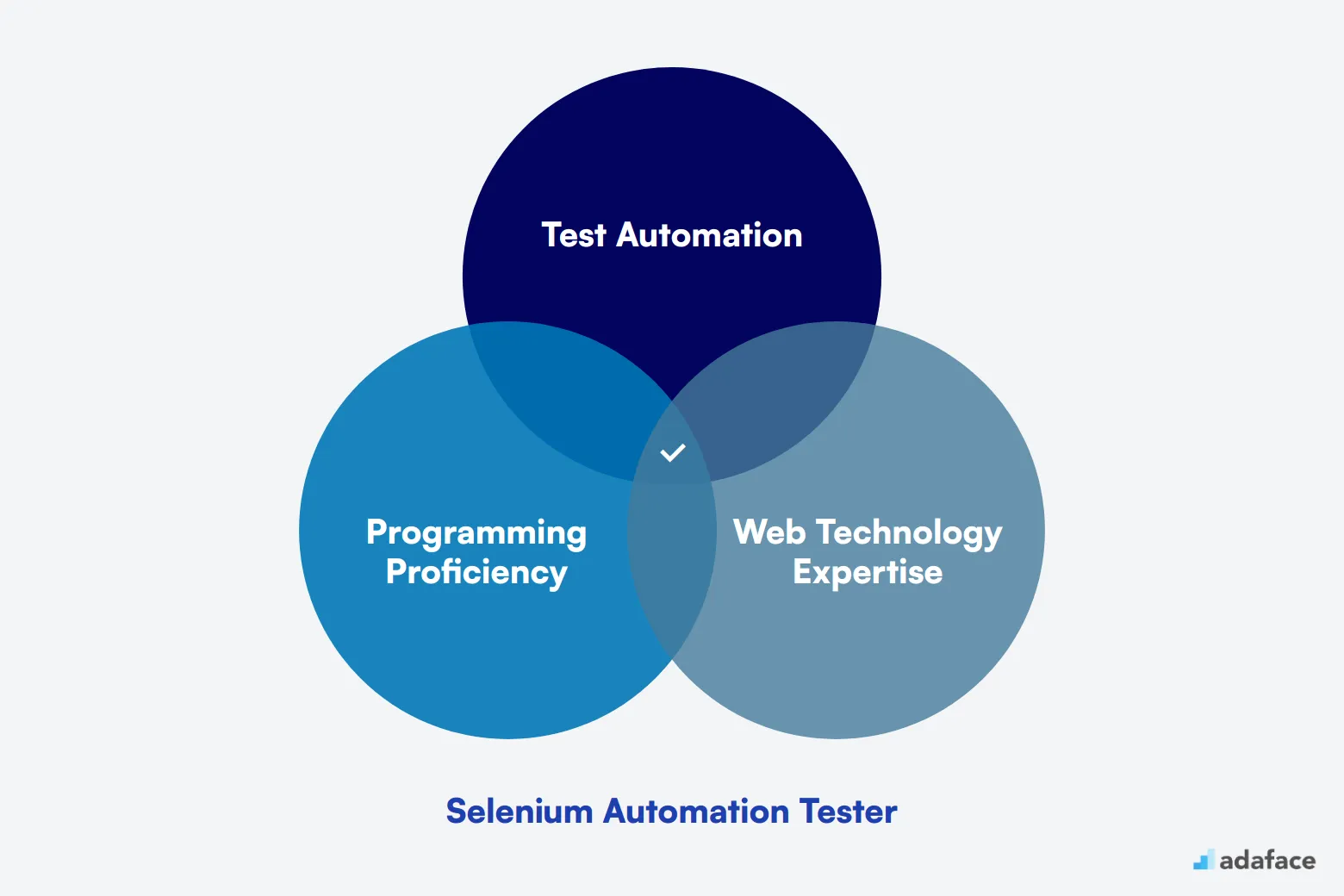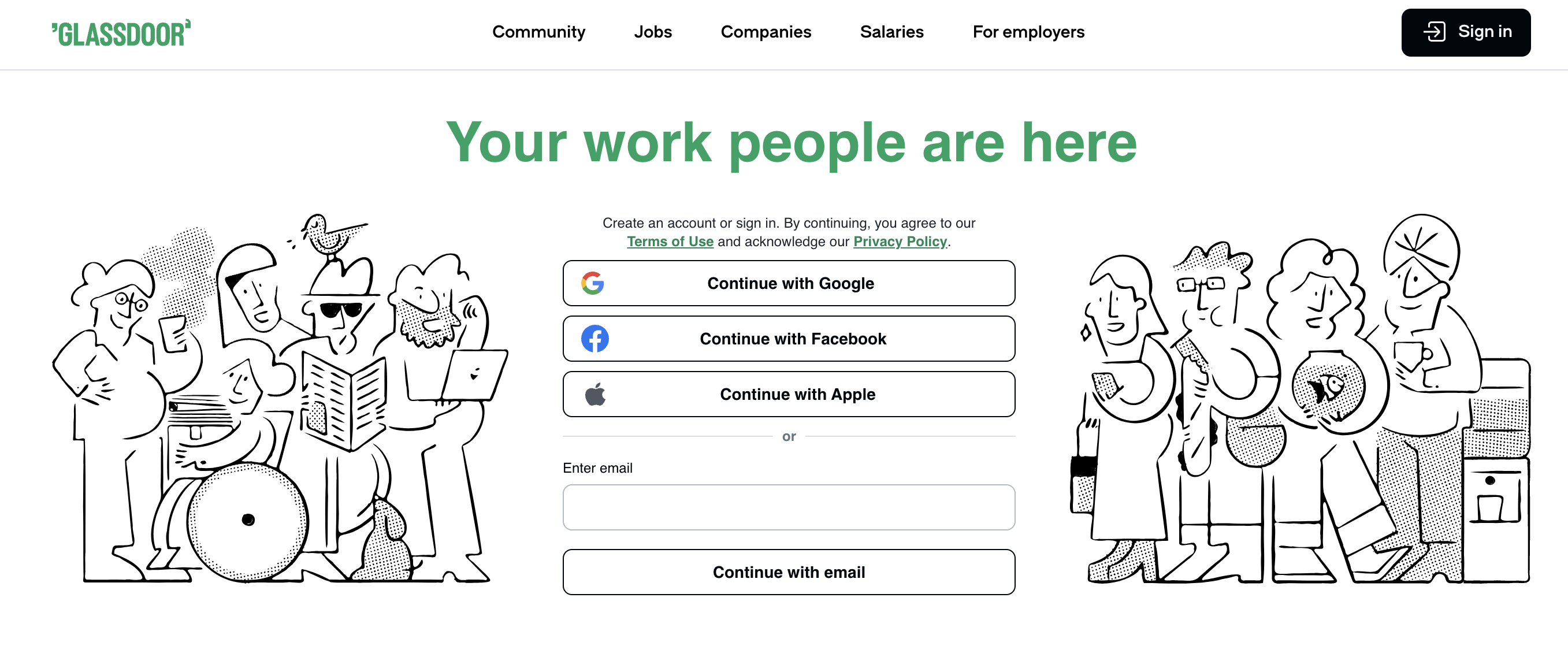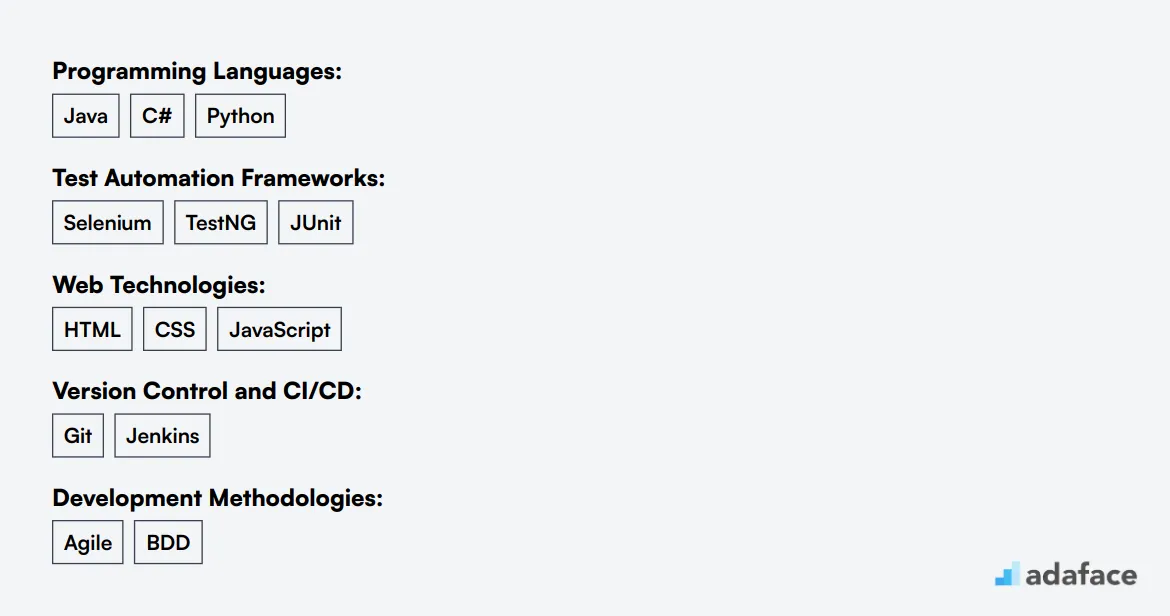Hiring a Selenium Automation Tester can be a game-changer for your quality assurance team. These professionals are key to streamlining your testing processes, catching bugs early, and ensuring your software runs smoothly. However, many companies struggle to find the right fit, often overlooking critical skills or failing to assess candidates thoroughly.
This comprehensive guide will walk you through the entire process of hiring a Selenium Automation Tester. From understanding the role to crafting the perfect job description, and from screening candidates to conducting effective interviews, we've got you covered. To get started, check out our Selenium online test to evaluate potential candidates.
Table of contents
Why Hire a Selenium Automation Tester?
Consider hiring a Selenium Automation Tester when your company faces challenges in manual testing efficiency or test coverage. For instance, if your team spends excessive time on repetitive tests or struggles to keep up with frequent software updates, automation can significantly improve productivity.
Selenium testers can help address common issues like:
- Slow regression testing cycles
- Inconsistent test results across different browsers
- Difficulty in scaling test suites for growing applications
Before committing to a full-time hire, assess your project's long-term automation needs. For short-term or specific projects, working with a consultant or using a skills assessment tool might be more suitable. However, if automation is a ongoing requirement, bringing in a dedicated Selenium expert can provide continuous value to your QA process.

Selenium Automation Tester Hiring Process
Hiring a Selenium Automation Tester typically takes around 4 to 8 weeks. Understanding the steps involved can help streamline the process and ensure you find the right candidate efficiently.
- Create a detailed job description: This should outline the skills and experience required for the role. Post it on relevant job boards and platforms to attract qualified candidates.
- Resume screening: Within the first week, expect to receive applications. Shortlist candidates based on their experience and skills relevant to Selenium automation testing.
- Skill assessment: Administer skill tests or coding assessments to evaluate candidates' technical abilities. This step can take about a week to receive results, allowing you to gauge their hands-on experience.
- Interviews: Conduct interviews with shortlisted candidates to assess their problem-solving skills, experience, and cultural fit. Aim to complete this within two weeks.
- Final selection and offer: Once you identify the best candidate, move to the offer stage promptly to secure their acceptance.
In summary, the hiring process can take about 4 to 8 weeks, depending on your pace. Be prepared to adapt each step as needed to find the perfect Selenium Automation Tester for your team. In the following sections, we will explore each step in detail, providing comprehensive checklists and resources to assist you.
Skills and Qualifications to Look for in a Selenium Automation Tester
Before beginning your search for a Selenium Automation Tester, it's important to define the skills and qualifications needed for this role. Many recruiters make the mistake of not distinguishing clearly between what's required and what's preferred, leading to a broader pool of candidates that may not fit the specific needs of your team. To help you streamline your hiring process, a clear outline of required and preferred skills is essential.
For the required skills, candidates should have three or more years of experience in Selenium testing and be proficient in programming languages such as Java, C#, or Python. Experience with test automation frameworks like TestNG or JUnit is also necessary, along with a strong knowledge of web technologies like HTML, CSS, and JavaScript. Familiarity with version control tools like Git is another key requirement.
On the preferred side, experience with CI/CD tools like Jenkins and knowledge of BDD tools like Cucumber can set candidates apart. Familiarity with cloud platforms like AWS or Azure, a background in manual testing, and an understanding of Agile methodologies are additional advantageous skills. For more insights on skill mapping, check out our detailed guide on skill mapping.
| Required skills and qualifications | Preferred skills and qualifications |
|---|---|
| Three or more years of experience in Selenium testing | Experience with CI/CD tools like Jenkins |
| Proficiency in Java, C#, or Python | Knowledge of BDD tools like Cucumber |
| Experience with test automation frameworks such as TestNG or JUnit | Familiarity with cloud platforms like AWS or Azure |
| Strong knowledge of web technologies like HTML, CSS, and JavaScript | Background in manual testing |
| Experience with version control tools like Git | Understanding of Agile methodologies |
How to write a Selenium Automation Tester job description?
Once you have identified the ideal candidate profile, the next step is to craft a job description to attract the right talent. Here are some key tips to consider:
- Clearly Define Responsibilities: Specify the core tasks such as designing, developing, and maintaining automated test scripts using Selenium. Mention how their work will contribute to improving the software quality and efficiency of testing processes.
- Balance Technical and Soft Skills: While technical skills like proficiency in Java, Python, or other programming languages are crucial, don't overlook soft skills. Highlight the importance of problem-solving, attention to detail, and effective communication. Detailed technical requirements can be found in our Selenium Automation Tester job description.
- Showcase Unique Aspects: Share what makes your company and the role stand out. Whether it’s working on cutting-edge technologies, career growth opportunities, or a collaborative team, these points can draw attention from top talent.
Top 10 Platforms to Find Selenium Automation Testers
Now that you have a well-crafted job description, the next step is to post it on job listing platforms to find the best candidates for the Selenium Automation Tester role. These platforms will help you reach a wide array of talent, making the hiring process smoother and more efficient.
LinkedIn Jobs
Ideal for finding full-time Selenium Automation Testers. Offers a large pool of professional candidates and allows detailed job postings with company branding.

Indeed
Great for posting full-time positions. Reaches a wide audience and offers options for sponsored job listings to increase visibility.

Glassdoor
Useful for employer branding and attracting full-time candidates. Provides insights into company reviews and salaries.

In addition to the popular platforms mentioned, consider using Dice for tech-specific roles and Upwork for freelance opportunities. Toptal offers top-tier freelance professionals, while FlexJobs specializes in remote positions. AngelList Talent is great for startups, and Monster provides a large candidate database for full-time roles. Finally, Stack Overflow Jobs focuses on developer positions, reaching a tech-savvy audience. To streamline your hiring further, explore Adaface's online assessment platform for evaluating candidates effectively.
Keywords to Look for in Selenium Automation Tester Resumes
Resume screening is a key step in finding the right Selenium Automation Tester. It helps you quickly identify candidates with the skills and experience you need, saving time in the hiring process.

When manually screening resumes, focus on key technical skills like Selenium, Java, TestNG, and Git. Look for experience with web technologies and automation frameworks. This approach helps you shortlist candidates who align with your job requirements.
AI tools can streamline resume screening. You can use AI language models to analyze resumes based on specific criteria, making the process faster and more consistent. This method is especially useful when dealing with a large number of applicants.
Here's a sample prompt for AI-assisted resume screening:
TASK: Screen resumes for Selenium Automation Tester role
OUTPUT:
- Candidate Name
- Matching keywords
- Score (0-10)
- Recommendation
- Shortlist (Yes/No/Maybe)
KEYWORDS:
- Selenium
- Java/C#/Python
- TestNG/JUnit
- HTML/CSS/JavaScript
- Git
- CI/CD (e.g., Jenkins)
- BDD (e.g., Cucumber)
- Agile methodologies
Customize this prompt based on your specific job requirements and company needs.
Which skills tests should you use to assess Selenium Automation Testers?
Skills tests are a great way to evaluate Selenium Automation Testers beyond their resumes. They provide objective insights into a candidate's technical abilities and problem-solving skills. Here are some recommended tests to assess your Selenium Automation Tester candidates:
Selenium Online Test: This Selenium test evaluates a candidate's proficiency in using Selenium WebDriver, handling web elements, and implementing automation scripts. It's essential for assessing core Selenium skills.
Java Online Test: Since Selenium often uses Java, a Java assessment can help gauge a candidate's programming abilities. This test covers Java syntax, object-oriented concepts, and problem-solving skills.
QA Engineer Test: A QA Engineer assessment evaluates broader quality assurance knowledge. It tests understanding of testing methodologies, bug reporting, and test case design - all valuable for Selenium testers.
JavaScript Online Test: Many web applications use JavaScript, so a JavaScript test can be useful. It assesses a candidate's ability to interact with web elements and handle dynamic content in automation scripts.
Web Testing Online Test: This web testing assessment evaluates a candidate's knowledge of web technologies and testing practices. It's helpful for ensuring the tester understands the environment they'll be automating.
How to Structure the Interview Stage for Hiring Selenium Automation Testers
Once candidates have successfully passed the skills tests, it's time to move them to technical interviews where their hard skills will be rigorously assessed. While skills tests are effective in screening out unsuitable candidates, they don't always identify the best match for the role. The interview stage is where you can dive deeper into a candidate's technical prowess and problem-solving abilities.
Here are some sample interview questions that can help in evaluating a Selenium Automation Tester's capabilities:
- Explain the difference between Selenium WebDriver and Selenium RC. This question tests their understanding of Selenium's toolset and its evolution.
- How do you handle dynamic content testing with Selenium? This checks their ability to deal with real-world scenarios like dynamic page content.
- Can you describe the Page Object Model and its advantages? This highlights their knowledge of best practices for designing test architectures.
- What are implicit, explicit, and fluent waits in Selenium? Understanding of waits is critical for robust test automation.
- How do you implement logging in Selenium? This question assesses their ability to debug and maintain tests efficiently. For a deeper dive into skills needed for this role, the blog on skills required for Selenium Automation Tester might be insightful.
Hire the Best Selenium Automation Testers
In this blog post, we've explored various aspects crucial for hiring a Selenium Automation Tester, including why they are necessary for your team, understanding the hiring process, key skills to look for, crafting effective job descriptions, and structuring the interview stage. We've also discussed keywords for resumes and the platforms where you can find these professionals.
The key takeaway from this guide is the importance of using well-crafted job descriptions and skills tests to ensure you hire the right candidates. Leveraging the right Selenium online test or QA engineer test can significantly streamline your hiring process. Remember, precise assessments lead to more confident hiring decisions.
Selenium Online Test
FAQs
Key skills include proficiency in Selenium WebDriver, programming languages like Java or Python, knowledge of testing frameworks, understanding of web technologies (HTML, CSS, JavaScript), and experience with version control systems like Git. For a detailed list, check our skills required for Selenium Automation Tester article.
Use a combination of technical interviews, coding challenges, and pre-employment assessments. Our Selenium online test can help you evaluate candidates' practical skills objectively.
Include required technical skills, experience level, responsibilities, and any specific tools or frameworks used in your organization. For a template, see our Selenium Automation Tester job description guide.
Look on specialized job boards, LinkedIn, GitHub, and tech-focused meetups or conferences. Also, consider using recruitment agencies that specialize in tech roles.
Start with a phone screening, followed by a technical assessment. Then conduct a technical interview focusing on Selenium-specific questions. Finally, have a cultural fit interview. Our Selenium Automation Tester interview questions can help you prepare.
Be cautious of candidates who can't explain their testing strategies, lack knowledge of recent Selenium updates, or have no experience with continuous integration tools. Also, watch for those who can't provide examples of how they've solved complex testing challenges.
The hiring process can take anywhere from 2-8 weeks, depending on your company's hiring procedures, the availability of qualified candidates, and the urgency of the position. Using pre-employment assessments like our Selenium online test can help speed up the process by quickly identifying top candidates.

40 min skill tests.
No trick questions.
Accurate shortlisting.
We make it easy for you to find the best candidates in your pipeline with a 40 min skills test.
Try for freeRelated posts
Free resources



